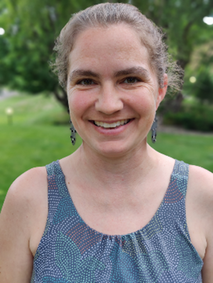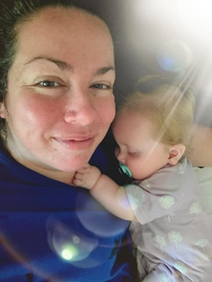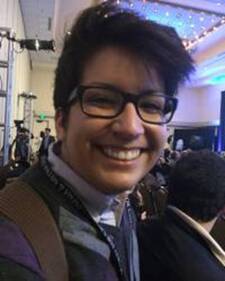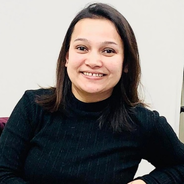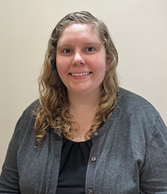|
“Embodied Writing: Introducing Breath into the Writing Classroom” by Dr. Jennifer Miller, Normandale College Students come to our classes carrying many things with them--trauma, family expectations and obligations, feelings of anxiety and depression, debt, and so much more. This baggage can have a profound physical effect on students that can make coursework more difficult. Focusing on breathing----one of the most fundamental physical acts—can help students be more connected to and in control of their bodies, making it easier to understand what they are feeling and respond to it productively. This presentation will briefly demonstrate breathing techniques that are based in the yoga tradition to help students feel more confident about their writing and themselves. Jennifer Miller earned her PhD in English at the University of Minnesota, and for the last decade has taught a variety of writing and literature courses at Normandale Community College in Bloomington, Minnesota. A registered yoga teacher, Dr. Miller is particularly interested in helping students view writing more holistically, so that they can tap into knowledge they already have and come to the classroom with more confidence. "ADHD and the College English Student: A Gift (of Sorts)" by Loli Dillon, Normandale College ADHD—Attention Deficit Hyperactive Disorder—sometimes is an advantage in learning with the right classroom environment. And on-ADHD students often may profit from teaching methodologies aimed at their ADHD peers. As a college English instructor (and former student) with ADHD, the presenter will provide some quick, practical pedagogical ideas to help instructors engage students with ADHD. Loli Dillon received her MA in Rhetoric and Applied Writing from St. Cloud State University in 2005. Since then, she has been teaching at Normandale Community College for over fifteen years. (However, she's taught college composition and literature courses at the developmental and college level for over eighteen years.) As a second-generation woman with ADHD, she's taken particular interest in neurodivergent learners and EAP students. "Understanding the Neurodiversity Paradigm and Its Role in Culturally Sustaining Pedagogy" by Tréza Rosado The neurodiversity paradigm seeks to reframe historically (and currently) pathologized “neurodivergences” as those cognitive processes and/or traits found less frequently in a given population rather than cognitive processes that diverge from some imagined average. Different organization or “clustering” of these processes/traits in an individual may present with different constraints and affordances across contexts. Reframing neurodivergence in the writing classroom must involve a shift toward pedagogical strategies that anticipate and design for a broader spectrum of student learning needs. This work is particularly urgent at present, given the lack of individual and institutional familiarity with neurodiverse presentations among female and BIPOC students in our rapidly diversifying classrooms. This talk will briefly describe current research into neurodiversity before offering strategies for revisioning classroom and curriculum approaches to be more inclusive of cognitive variance. Tréza Rosado received an MA in Comparative Literature (with a concentration in Cinema & Media Studies) from the University of Washington in 2014. For the past decade, she has taught first-year writing and introductory literature courses at Seattle Central College, Dougherty Family College, and UMN. After a late-diagnosis of ADHD, Tréza was motivated to better understand cognitive development. A student in the UMN Learning Sciences Certificate Program, she currently is researching the developmental and pedagogical implications of neurodiversity. Academic communities are working to settle into the new landscape of easily-accessible generative AI tools. Faculty, staff, and students are building their knowledge and skills yet may be pondering many questions and possibilities.
The plenary speakers for this session have been actively involved in AI-related work. They will discuss the research, actions, and initiatives with which they have been engaging, and share insights about student use of AI tools, faculty support, and institutional actions and conversations. The session will start with a brief overview of generative AI, highlight some institutional policies and resources, and speak to critical AI literacy. Then, LeeAnn and Asmita will share insights from a study about ChatGPT and undergraduate students. Jessa will talk about building program and faculty capacity around AI literacy in the UMN First Year Writing program. And Amy will speak of leading and engaging in conversations and policy within her larger university community regarding generative AI tools. Lee-Ann Breuch is the new Associate Dean for Undergraduate Education in the College of Liberal Arts at the University of Minnesota. Until this semester, she was a Professor in and Chair of the Department of Writing Studies. Her research has investigated rhetoric and digital writing in a variety of settings such as classrooms, professional organizations, and social media. She taught courses in technical communication, digital writing, usability research, and evaluation of online interfaces. Asmita Ghimire is a Ph.D. student in Rhetoric, Technical and Scientific Communication at the University of Minnesota. Her areas of pedagogy and research are teaching using AI, transnational feminist rhetoric and writing, and global policy studies. She has published papers in Peitho, SIGDOC, and Academic Labor and Research. Her book chapter on the MeToo movement in Nepal is upcoming. Currently, she is working on a project in which she looks at the argumentation-mining technique from a transnational feminist perspective. She also contributes to AskMeAbout Nepal, a digital campaign to introduce Nepal internationally. Jessa Wood is Assistant Director of First Year Writing and a Ph.D. candidate in Rhetoric, Scientific and Technical Communication at the University of Minnesota. Her pedagogy and research investigate teaching with AI; and praxis for collaborative, equity-oriented writing program administration in spaces across the university, including first-year writing programs, writing centers, and writing across the curriculum/writing in the disciplines. Amy Bakke has worked for more than ten years in the Writing Center and more recently the Office of Academic Support and Instructional Services at Walden University, a fully online higher ed institution with a focus on graduate education. Her background is in teaching English as a second language. Much of her recent work has revolved around academic writing support, staff training, inclusive teaching and learning in online spaces, and supporting AI literacy and policy at Walden. |
|

